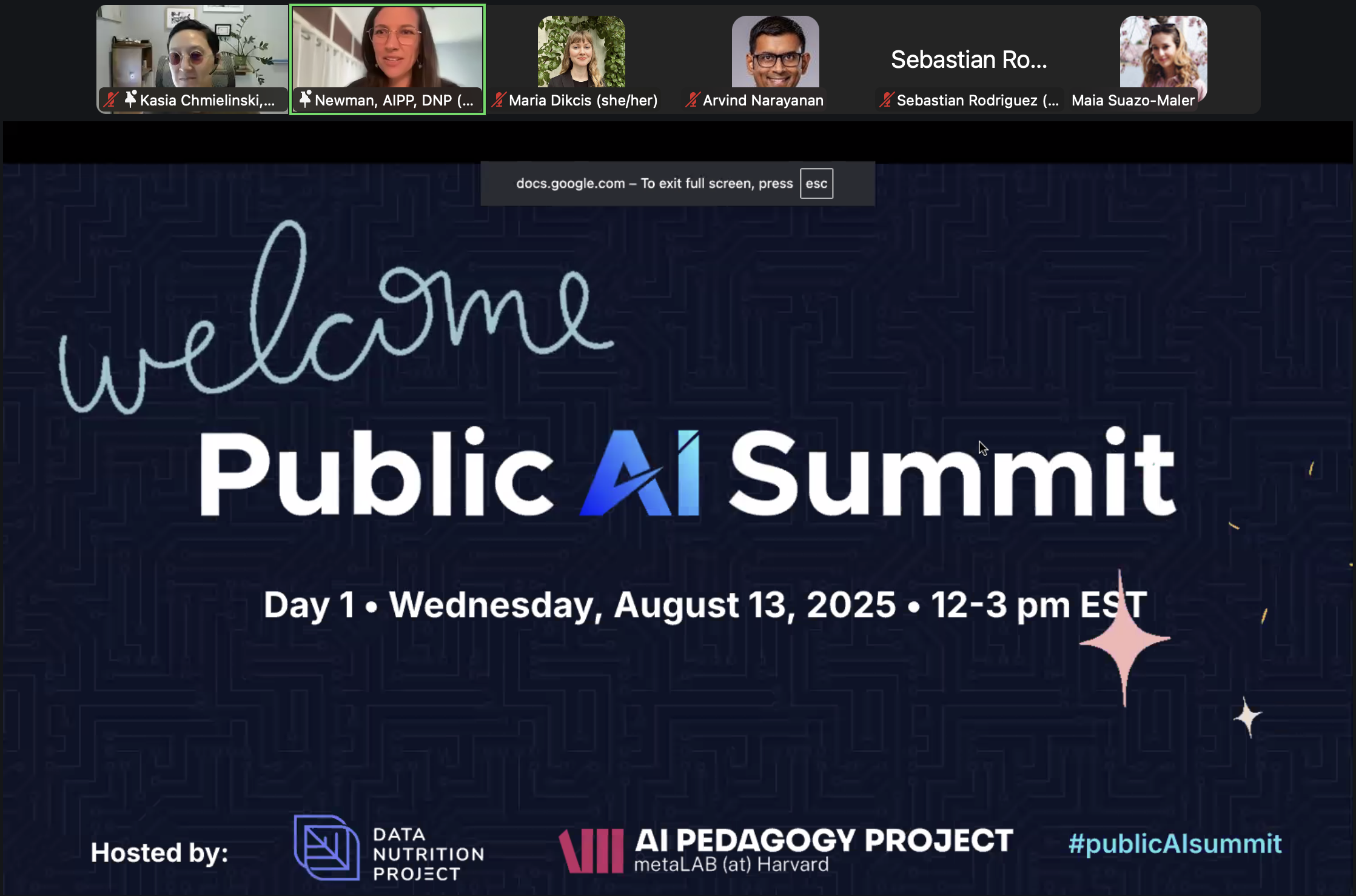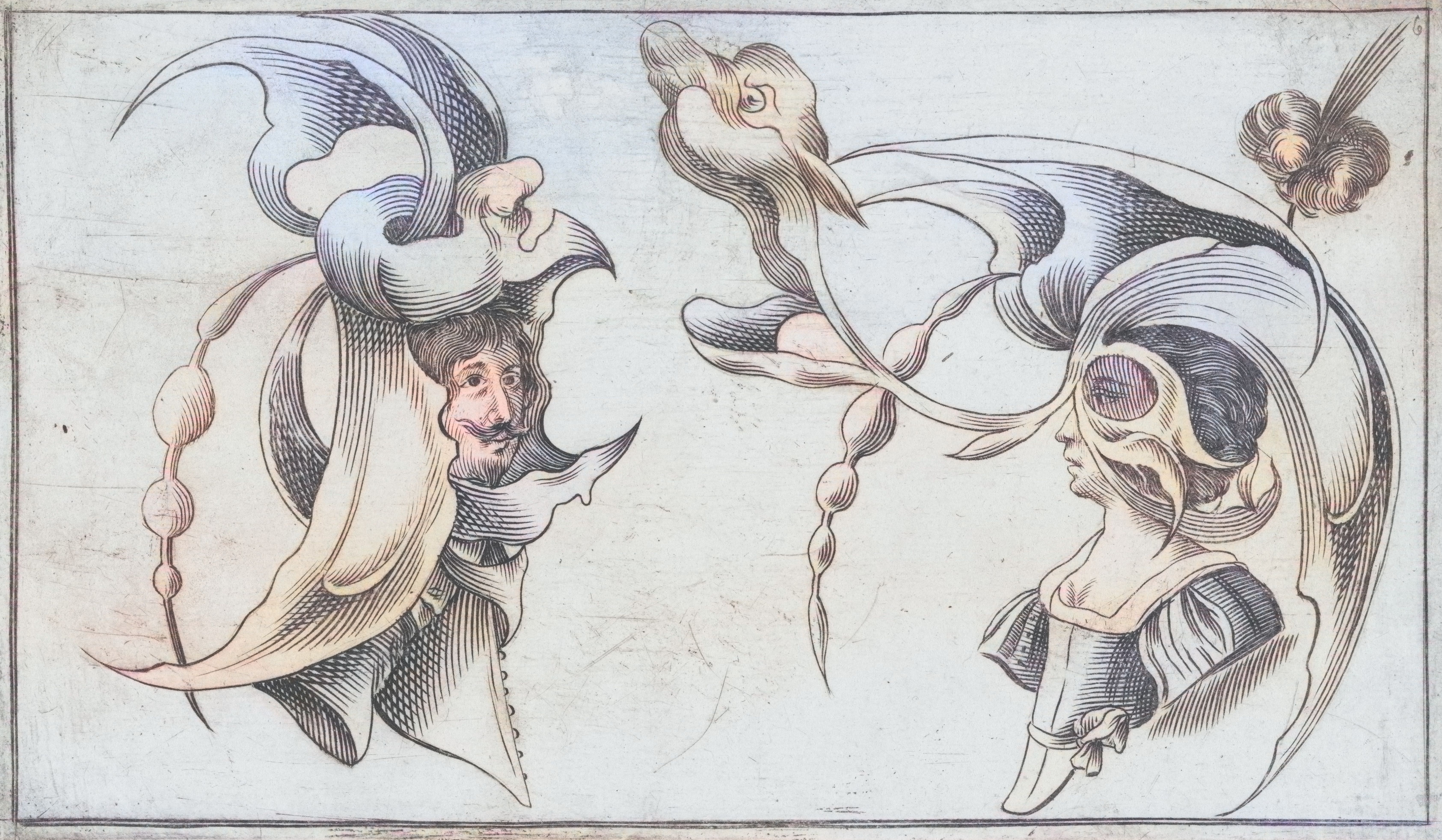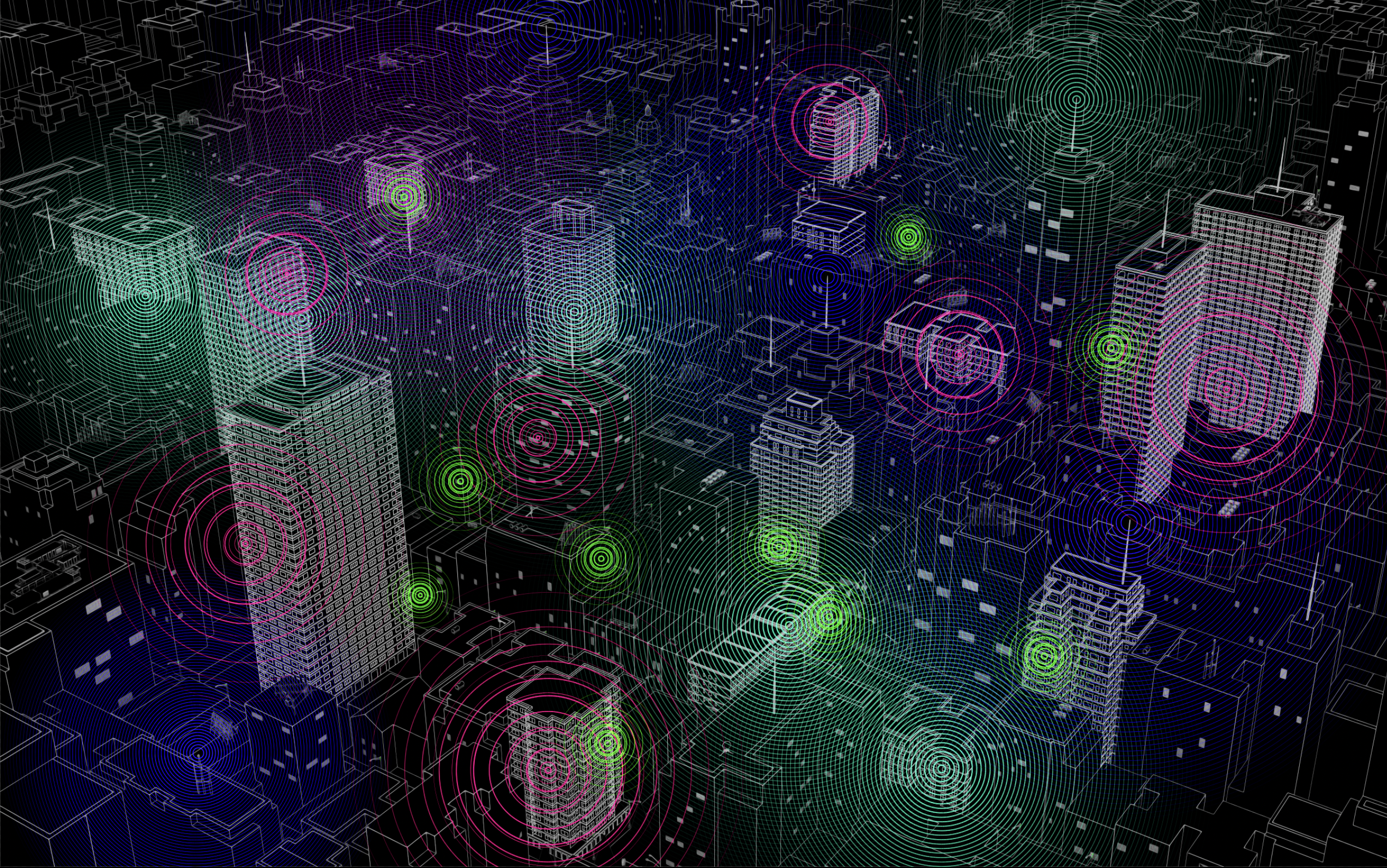AI Pedagogy Project
I am founder and lead of the AI Pedagogy Project (AIPP), a resource aimed at guiding educators in critically engaging with AI tools in their teaching. This initiative is tailored for post-secondary educators in non-technical fields, in order to address the opportunities of and concerns about AI use in the classroom. In early 2023, I noticed that while students were curious and intrigued with the availability of AI tools, educators and administrators were not equally equipped to meet the moment. Particularly in writing-heavy disciplines, there was concern—and confusion—about AI tools like large language models. We took this as an opportunity to build a site for educators to help them consider whether to engage with AI technologies in their teaching, and how to do so critically and creatively.The project offers:
- A searchable collection of educator-designed assignments for integrating AI into syllabi, and doing so responsibly and critically
- Understandable AI concept descriptions designed to outline essential concepts and skills in a streamlined guide
- Recommendations for educators on how to begin their AI journey in the classroom
- An interactive tutorial on using large language models
- A resource list for further AI exploration, including related projects
The AI Pedagogy Project seeks to demystify AI, encouraging critical engagement and creative AI applications in education. It's an evolving platform, designed to adapt alongside AI advancements and their societal impacts, and engage students in analyzing and critically re-imagining the future of this technology. All assignments are adaptable to diverse pedagogical styles and classroom needs. The AI Guide offers a comprehensive introduction for AI novices and those wishing to expand their knowledge.
Public AI Summit
The Public AI Summit was a two-day virtual event in August 2025 for the general public to hear from leading experts about the latest AI developments, gain a clearer understanding of what these changes mean, and learn how we can leverage these tools in our everyday lives. This event was free, open to all, and designed to make AI approachable and relevant for diverse audiences.
The Summit engaged 1,400+ participants in keynote lectures and hands-on, virtual workshops.
Sign up for our newsletter here to learn about future events!

Keynote Speakers
Recordings of the keynote talks are available to the public at: https://publicaisummit.com/#keynotes.“What is AI? AI as Normal Technology”
Arvind Narayanan, Princeton University
“How Does AI Affect Us? The Past, Present, and Future” Kathy Pham, Harvard University
“What Can We Do About (and With) AI? Education as a Case Study”
Maha Bali, American University in Cairo
Anna Mills, College of Marin

Workshops
Presentation slides and other creative documentation from the below workshops are available to the public at: https://publicaisummit.com/#workshops“Writing Prompts for Everyday Life”
Randi Williams, Day of AI
“A Critical Introduction to AI-Generated Images”
Eryk Salvaggio, University of Cambridge
“How AI ‘Learns’: An Introduction to Data Labeling & Taxonomy Design”
Annie Brown, Reliabl
“The Data Behind AI: A Hands-On Workshop on Dataset Documentation”
Kasia Chmielinski, Data Nutrition Project
“Benefit from Your Data While Keeping It Secure”
Mary Gray, Microsoft Research
“Wise Companionship with Artificial Minds”
Olivia Tai, Independent Researcher
“Toward a Serendipity Machine: Supporting Creative Production with Generative AI”
Ziv Epstein, Stanford University
“Coming to an (AI) Agreement: Creating Course and Community Guidance About AI Usage”
Lance Eaton, Northeastern University
“Working with Open-Source LLMs”
Katie Watson Jordan, Meta
Aisha Iqbal, Meta
Dhruv Diddi, Solo Tech
“The Digital You”
Var Shankar, Council on AI Governance
“GenAI Youth Safety Risks and Mitigations”
Lisa Titus, Meta
Leah Treitman, Meta
Sign up for our newsletter here to learn about future events!
Data Nutrition Project
The Data Nutrition Project is a nonprofit that aims to increase transparency in data-driven systems through AI education and easy-to-use products. We believe that technology should help us move forward without mirroring societal biases.The Data Nutrition Project team:
- Creates tools and practices that encourage responsible AI development
- Partners across disciplines to drive broader change
- Builds inclusion and equity into our work
Explore the Dataset Nutrition Label — a standardized “nutrition label” for interrogating the quality and intended use of datasets!

AI Personality Study
Do the “personalities” of large language models, including their tone, style, and values, change depending on which language we prompt them in—and should we care?This project is supported by Harvard University’s William F. Milton Fund Generative AI Grant and interrogates the biases inherent in the “multilingual” capabilities of the latest large language models (LLMs).
In one of the first studies of its kind, metaLAB (at) Harvard is launching a comparative investigation of the personalities and linguistic styles of LLMs across different languages, with a particular eye to differences between high- and low-resource languages; in this context that refers to how much of the language is available in the form of digital text on the internet for training data for these models. Through a series of research workshops, multi-lingual participants will evaluate the outputs of LLMs by prompting them in different languages, analyzing not only what the models respond with but how they say it. The study will document these findings, offering insights into the linguistic styles and cultural subtexts that emerge across languages. Read more about the AI Personality Study.

Art Experience: Swimming in a Sea of Invisible Waves
Swimming in a Sea of Invisible Waves is a multimodal project – part art, part science communication, part public engagement – that seeks to understand, demystify, and create designs to visualize the various radio frequency technologies (including wifi, cellular, bluetooth, and satellite) that provide the scaffolding for 21st century information and communication technologies.
The invisibility of technology infrastructures are varied: some are invisible because they are literally out of sight—server farms, submarine cables, and under- or over-ground wiring; this project focuses on those that are invisible because their signals are in the form of radio waves outside of the visible spectrum (the pulsing of bluetooth, the cellular connection via triangulated towers, the wireless signal to a wired router).
This project focuses on the massive amounts of information moving invisibly around us, and supporting our daily lives, our economy, our tech development big and small, and essential to life in the 21st century, while largely either ignored or misunderstood.
Work in progress. Project team includes: Dhriti Vadlakonda, Kathleen Esfahany, Lindsay Saftler, Maggie Chen, Mohsin Yousufi, Rebecca Kilberg, Sabrina Madera, Sonia Sobrino Ralston, Taylor Bledsoe, Zachary Slonsky